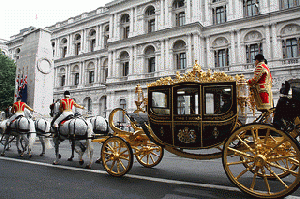There are countries that do offer voters a wider selection of candidates in elections, but these examples invariably seem to be parliamentary systems. Need we conclude that to achieve a multiple-party system the U.S. must consider changing to a parliamentary system? In the series we argue that another approach would be to change our voting system and responders to a poll overwhelmingly agreed with this assessment suggesting that this other approach seems available to us.
In answer to a comment to that poll, I offered the opinion that it would be very difficult for the U.S. to change to a parliamentary structure because that would seem to require numerous amendments to our Constitution. Overall, the message of the other articles of this series of articles is that by changing our voting system to a balanced voting system (balanced in the sense that we could cast a vote against a candidate as readily as we could cast a vote for a candidate) that would lead to a multiple-party system; because voting rules in our country are not established by the federal government, such a change in voting rules could only be accomplished state-by-state. That process would likely not be easy, but it would be considerably easier than amending the Constitution.
Ironically though, if this change were to happen and we consequently developed a true multiple-party electoral system, our Constitution as it currently stands would push our political system at least a significant step towards becoming a parliamentary system. Amendment XII was ratified in 1804 to re-write Section 1 of Article 2. This was done to ensure that the Vice President and President would run for office as an executive team. However, the revision retained the requirement in Article 2 that the decision of the Electoral College must be by a majority vote; if the Electoral College could not muster a majority vote for a candidate then the choice of President and Vice President would be turned over to the House of Representatives.
In the early days of our republic, the Electoral College consisted of men who were chosen by their individual states to use their best judgment in choosing the next president. With the advent of improved communications and transportation methods, the Electoral College has become something of an anachronism; it no longer operates as much more than a formality, though one that can, on occasion cause some mischief by electing a president who does not win the majority vote of the people (as happened in the 2000 election). Likewise the requirement that the Electoral College must select a president through a majority of the College has the potential for mischief, but the fact of our two-party system has kept that mischief (a president being chosen by the House of Representatives) from being realized.
But if, by changing our voting system (or by any other means), we achieved elections with real competition by more than two political parties then we could reasonably expect the Electoral College to frequently be unable to choose a president by a majority of votes. Our presidential and vice-presidential elections would typically if not always be thrown into the House of Representatives. Notice though that except for the formality of turning first to the Electoral College, this would be much like what happens in a parliamentary system. It could in fact be argued that the fundamental difference between our system and a parliamentary system is that the winning party in Parliament gets to choose the Prime Minister. However, unlike parliamentary systems we would still have presidential elections regularly scheduled every four years and we would not have the weekly questioning of a prime minister by the loyal opposition. If this were considered a parliamentary system, it would be a uniquely American version of one.
But accustomed as we are in the U.S. to electing our president, finding that our presidents are instead selected by the House of Representatives might seem a bitter pill. Even Americans who sometimes daydream about having a parliamentary government might find this reality a bit unsettling.
But clearly we would have an alternative. If instead we decide to Amend Article II once more, perhaps by simply removing the language that insists on a majority in the Electoral College, then we would retain something more like the electoral system we are accustomed to, but with more parties in contention, with voters having more choices and with election results more accurately reflecting the wishes of the voters.






